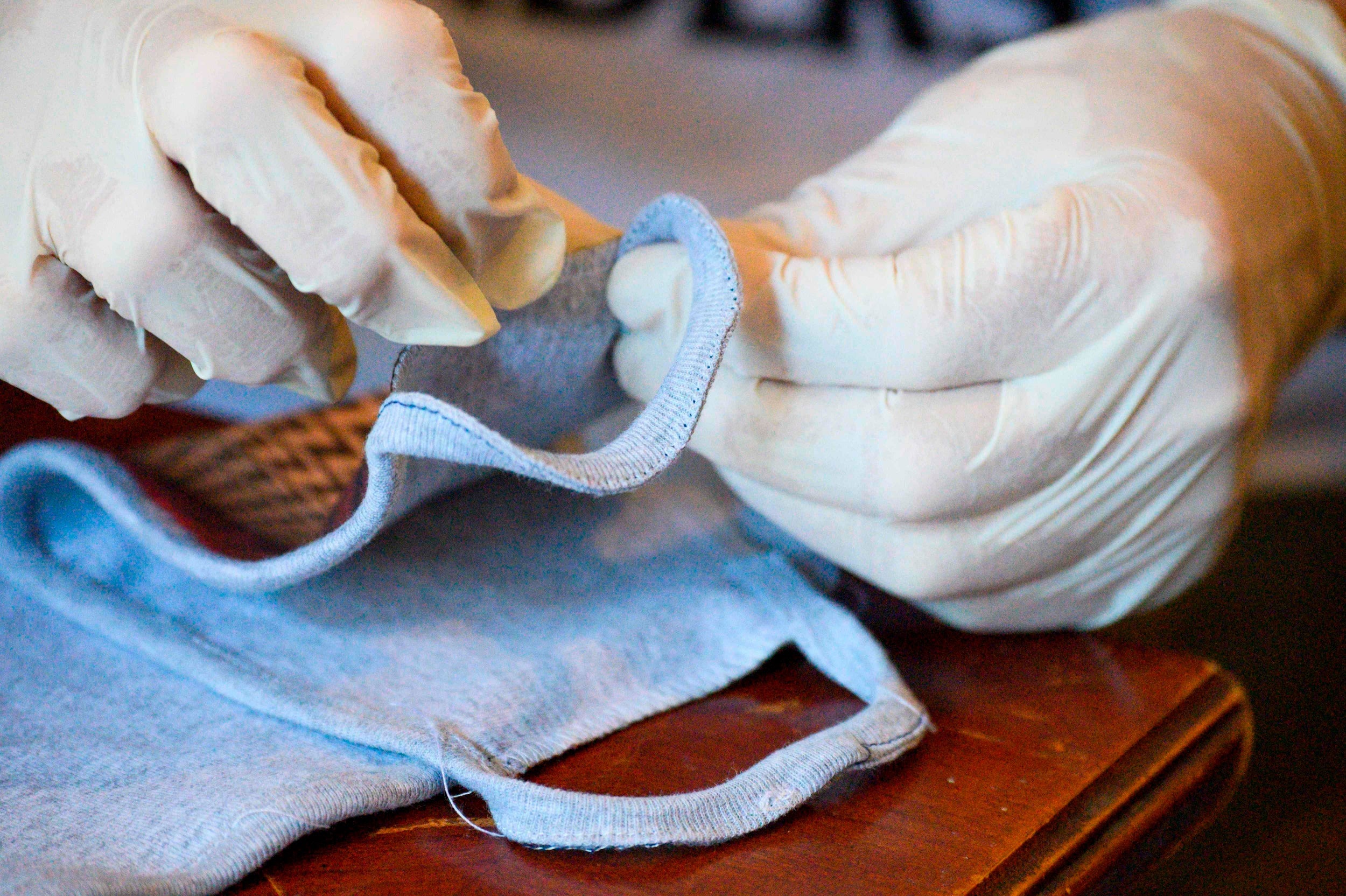‘I don’t feel safe’: Migrants making protective gloves for hospitals allege labour abuse and exploitation
‘Sometimes they don’t treat us like humans, they insult us, or beat us,’ worker tells Caleb Quinley

Every morning Ramtaspa* wakes to the intense heat inside his cramped dorm, a small room where more than a dozen other Nepali migrant workers sleep. The temperature is almost unbearable. Laundry hangs from bunk beds while small fans work to barely cool down the densely populated and cluttered accommodation in Malaysia.
He dreads having to face another day working in the factory. In the early hours of the morning, he waits outside the front entrance along with hundreds of other migrants to clock in for another 12-hour shift under strict supervision. There’s a palpable sense of misery, as many workers like him feel neglected, mistreated and unsafe during the pandemic.
Malaysia is the world’s largest supplier of disposable rubber gloves, and with a global shortage of PPE, companies are increasing production. Some of those working in two of the country’s largest glove factories tell The Independent they are working in unsafe conditions, without proper pay, and are often subjected to verbal and physical abuse from their employers.
“The company should take care of us, because it’s a pandemic. Right now we’re confused and we’re scared,” Ramtaspa tells The Independent. From Nepal, he’s been working for several years at WRP, a Malaysian rubber gloves manufacturing plant that has been accused of using exploitative practices.
The Independent received multiple accounts from workers in WRP factories in Malaysia, who say guards have been seen slapping migrants in the face, pushing them aggressively on the chest and kicking them from behind.
Malaysia has recorded 5,691 coronavirus cases and 96 deaths, making it one of the worst hit countries in southeast Asia.
But Ramtaspa says social distancing practices are not being used on the production line, in packaging or at the front entrance where huge crowds amass every day.
He also fears that the company would not support any of those workers should they get sick.
“Whenever any workers get diseases they don’t offer health services,” he says. “Nothing at all. The company doesn’t provide anything, no money, or food, they give us nothing.”

It is a fear shared by Sharma*, a Nepali night shift worker at Top Glove, another leading rubber gloves manufacturer in Malaysia. He too fears that it’s just a matter of time until the virus starts to infect those around him.
“We don’t feel safe because the company is not being careful,” he says.
He says managers put on a show for inspectors and stage proper social distancing practices, but that as soon as they would leave, workers are ordered back into dangerously close quarters to maximise work efficiency.
The Independent obtained several videos and photographs showing that safe distancing practices were not being implemented.
Andy Hall, an independent researcher into migrant worker rights, says labourers are “massively exploited” and face “increased pressures and increased risks to their health”.
“Now more than ever we need concrete measures to combat this threat of exploitation and to protect these frontline supply-chain workers, who have no right in practice to refuse their dangerous work,” Hall says.
“However urgent the current pandemic, now is not the time to turn a blind eye to the significant risks faced by voiceless, impoverished and indentured workers producing the equipment we so desperately need.”
Workers also allege that Top Glove hires a security team to threaten migrant workers at their homes if they refuse to go to work. Top Glove has yet to respond to The Independent's request for comment.
WRP responded saying “these allegations are baseless and are not true.”
“WRP has put in place measures and procedures to ensure the safety and health of our workers and at the same time, in compliance with the Malaysian laws and regulations,”
“The new management is indeed proud of WRP’s recent transformation of its labour practices."
Helen Sworn, founder and director of Chab Dai, an anti-human trafficking organisation, warns migrant labourers face more risk away from their home country.
“When you’re a migrant worker or refugee, you have no family or friends, no infrastructure, so your vulnerability level increases tenfold,” she says.
This feeling is all too familiar for Ramtaspa.
“Sometimes they don’t treat us like humans, they insult us, or beat us,” he says. “We feel very sad and feel like they don’t think of us like human beings.”
* Name has been changed to protect identity
UPDATE 28.04.20: Following publication of this article, Top Glove has denied the claims of one of its workers. It says that its employee’s safety, health and wellbeing is of the utmost importance to the company. Top Glove says that safe social distancing are being practised, in tandem with several preventive measures, aimed at ensuring all their staff are safe and well-protected during the COVID-19 pandemic. Top Glove has further told The Independent that it was founded on good and positive values, and it will continue to identify ways to create a work environment in which everyone feels valued and appreciated. We are happy to place Top Glove's position on record.
Join our commenting forum
Join thought-provoking conversations, follow other Independent readers and see their replies
Comments